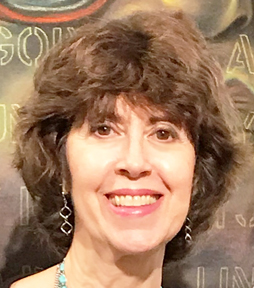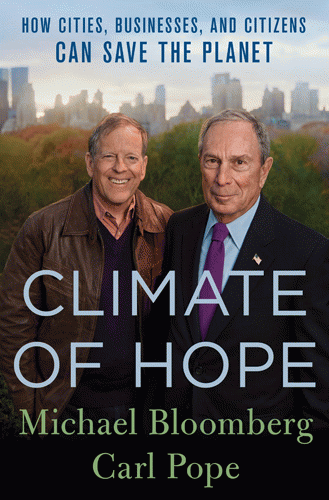A new book by business magnate and former New York city mayor, Michael Bloomberg, and Carl Pope, previously executive director of the Sierra Club, puts forth the premise of "How cities, businesses, and citizens can save the planet."
In seven chapters, they break down key ideas with clearly delineated points to generate a game plan for attacking climate change from a pioneering angle.
The two men connected around PlaNYC, a New York City sustainability plan. Bloomberg Philanthropies later supported a Sierra Club initiative, Beyond Coal, with a $50 million grant. The goal was to close down or phase out one-third of the coal-fired plants in America.
Bloomberg states that he is both a capitalist and a believer in the premise that the prime responsibility of government is to "protect public health and safety." He's a numbers man, and his motto is, "If you can't measure it, you can't manage it."
Referencing facts and figures, Bloomberg presents stats that show why acting now on climate change is the best move -- economically and financially. Early on, he references global GDP figures to support the point that when it comes to dealing with the fallout from climate disruption, the costs of confronting the problem is substantially less.
Pope and Bloomberg agree that the impetus for change is not going to come from Washington (especially with an administration of climate deniers.) They see cities as the drivers of change and the "key" to tackling the problems of climate change.
As mayor, Bloomberg tracked emissions, "quantified" them, and then categorized them by source. He applied cost/benefit analysis to his findings, instituted an Office of Long-Term Planning and Sustainability, and made alliances with other mayors from around the country and the world.
I don't agree with Bloomberg on everything. He supports nuclear power and is okay with fracking -- "if it's done safely." He acknowledges that gas companies have not self-regulated, and that they need established oversight to avoid methane leaks, pollution of ground water, and earthquakes. He sees gas not as a "permanent solution," but an essential alternative until we reach a "decarbonized economy."
Beijing is an example Bloomberg cites for coming to grips with the net costs of high air pollution. The metropolis has seen health ramifications for inhabitants, as well as less foreign investment.
A pragmatist, Bloomberg wants to see cities planning for the 21st century and future generations. He had plenty to consider after Hurricane Sandy left New York City residents with a horrifying lesson about flood zones. Bloomberg notes that by the 2050s, 800,000 New Yorkers will be living in a projected floodplain (level land that may be submerged by floodwaters).
Armed with data, Bloomberg learned that 75 percent of emissions come from buildings. He puts forth the concept of tying tax credits to the installation of green roofs and solar panels. He became part of the Global Covenant of Mayors for Climate and Energy, where member cities used a standard system for measuring carbon emissions.
Cities as "drivers of action" became a crystallized concept for Bloomberg, often frustrated by the pace of federal action. He underscores, "Cities can't wait for national governments to act." Bloomberg envisions a network of cities as "collective forces of change" -- setting precedents in innovative urban planning, promoting public transportation, and embracing public space that doesn't included vehicular traffic
Pope and Bloomberg cover a full range of territory. Topics include getting rid of fossil-fuel subsidies, the consequences of how we eat (agricultural practices are responsible for 30 percent of total methane emissions), an examination of how we use our resources, and the need to see climate change as an economic concern with tangible financial impacts.
My biggest takeaway from the book was what Bloomberg called the failure to recognize "disruptive innovation." An example is the electric car. He uses a Silicon Valley phrase, "Valley of Death," to pinpoint what happens when the technology is ahead of the market.
It's all about adopting novel ideas and business models. Going with a green technology revolution in transportation instead of holding onto the old fossil-fuel paradigm or re-examining how our electrical grid is sourced and operates.
(Note: You can view every article as one long page if you sign up as an Advocate Member, or higher).






